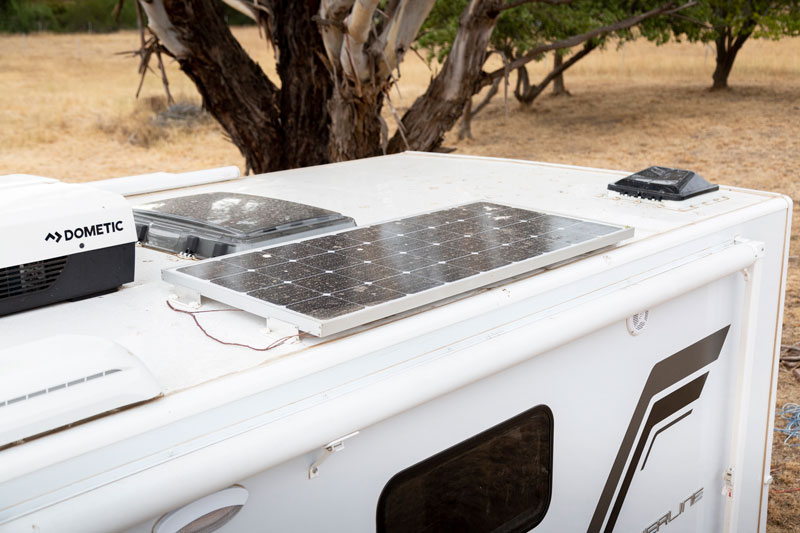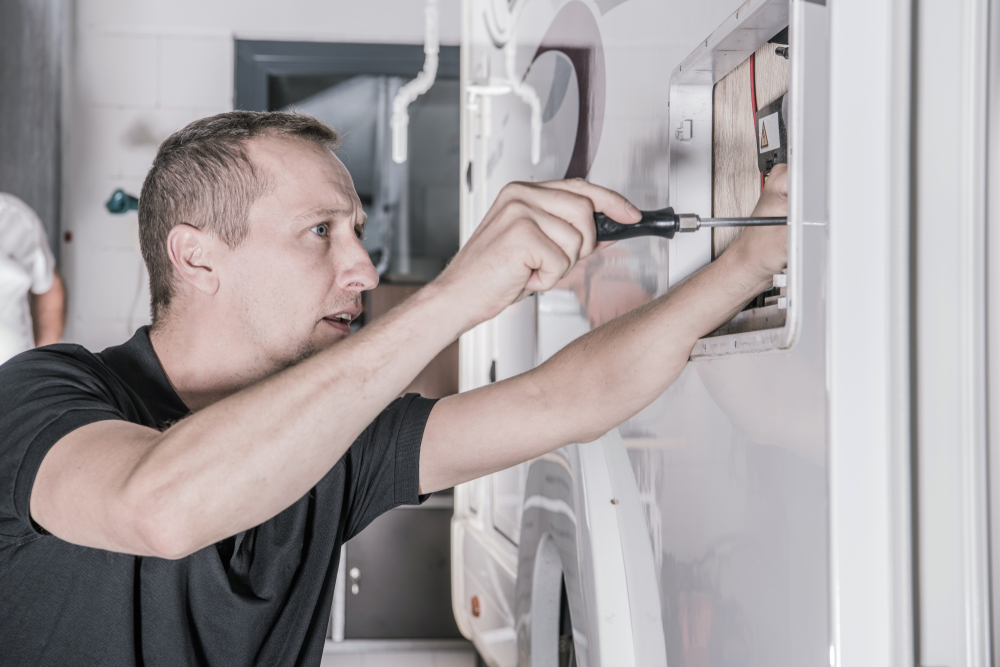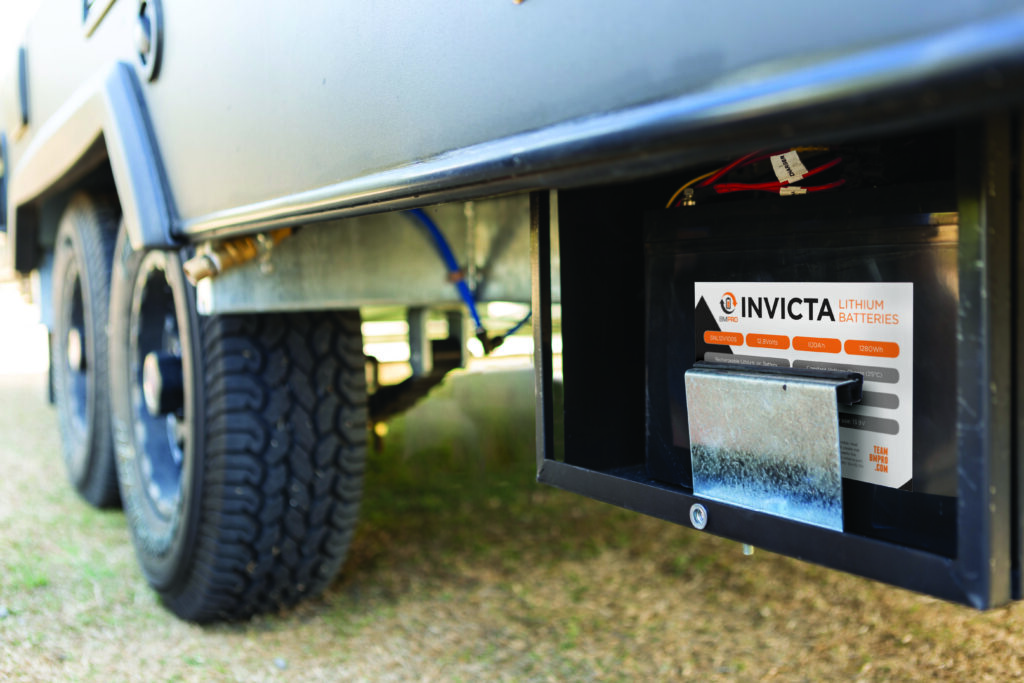
12V Guru – Optimising your Solar Power System
Solar Panels installed on your vehicle roof? Our 12V Guru discusses how to optimise their performance in place of buying more panels
Embarking on a new adventure can be thrilling, but a dead battery or frequent power outages can quickly spoil the fun. That’s why proper battery management is crucial to ensure a stress-free and road trip-ready RV adventure.
In this blog, we will explore some battery management tips and best practices to ensure that your RV batteries are in top condition and capable of powering all your devices and appliances. Whether you’re a seasoned RV enthusiast or a first-time road tripper, these tips will help you enjoy the ultimate RV experience with confidence and peace of mind.
When it comes to battery management for RVs, understanding the different types of batteries used is crucial. The most common type of batteries used in RVs are lead-acid batteries, which come in two main varieties: flooded lead-acid batteries and sealed lead-acid batteries.
Flooded lead-acid batteries are the traditional and most common type of battery found in RVs. They are cost-effective and reliable, however, require periodic maintenance to check water levels and add distilled water as needed. It’s important to monitor the water levels in flooded lead-acid batteries to prevent damage and extend their lifespan.
Sealed lead-acid batteries, on the other hand, are maintenance-free batteries and they do not require regular water checks. They are more expensive than flooded lead-acid batteries and they offer convenience and peace of mind. Sealed lead-acid batteries are a great option for those who want a hands-off approach to their battery maintenance.
Another type of battery commonly used is the lithium-ion battery. These batteries are more expensive than lead-acid batteries but offer several advantages. Lithium-ion batteries have a longer lifespan, faster charging times, and they are lighter weight, making them a great option for those who need a reliable and efficient power source for their RV.
One of the most important aspects of battery management is properly charging and maintaining your RV batteries. Here are some tips to help ensure that your batteries are in good condition before you hit the road:
1. Charge your batteries fully before you depart.
A common mistake RV owners make is not fully charging their batteries before embarking on their trip. Be sure to charge your batteries fully before you leave to ensure that they have the maximum amount of power available.
2. Use a high-quality charger.
When charging your batteries, it’s important to use a high-quality charger designed for RV batteries. This will help ensure that your batteries are charged properly and not overcharged, which can damage your batteries.
3. Monitor your batteries while charging.
While charging your batteries, be sure to monitor them periodically to ensure that they are not overheating or overcharging. If you notice any issues, stop the charging process immediately and seek professional assistance.
BMPRO’s ASPERO power management system provides information that helps you to have complete power management and monitoring of your RV’s battery status and it charges all RV battery types. This offering from BMPRO is the ideal solution to help you monitor your battery while it is charging so you will never have the issue of your battery overheating or overcharging.
4. Check water levels in flooded lead-acid batteries.
If your RV uses flooded lead-acid batteries, be sure to check the water levels periodically and add distilled water as needed. This will help ensure that the batteries are able to function properly and last as long as possible.
5. Invest in a Power Management System.
Investing in a proper Power Management System will help you to extend the life of your batteries and ensure that they are always road trip ready. BMPRO’s wide variety of battery management products help you to carefully manage and monitor the battery levels of your RV as well as the battery levels of your other appliances so you can always travel in comfort no matter where you are.
Once you’re on the road with your Power Management System, it’s important to also conserve your battery power as much as possible to ensure that you have enough power for all of your devices and appliances. Here are some tips for conserving battery power while on the road:
1. Use LED lights.
LED lights use up to 80% less energy than traditional incandescent bulbs. This means that they require less power to produce the same amount of light, which can help to reduce your overall power consumption and conserve your battery power. With LED lights using significantly less power than incandescent bulbs, it is worthwhile replacing your RV’s bulbs to help save power on your trip.
2. Invest in solar panels.
Solar panels can help you recharge your batteries during the day, which can help you conserve power and reduce your reliance on traditional charging methods. By investing in solar panels, you can harness the power of the sun to charge your batteries, reducing your carbon footprint while also helping you to conserve battery power for your RV and appliances.
3. Prioritise essential devices.
When you’re out on the road in your RV and low on battery power, it’s important to make smart choices about which devices and appliances you use to conserve energy and prolong the life of your batteries. Prioritising the devices and appliances that are essential for your trip is key to ensuring that you have enough power to keep you comfortable and safe on the road.
Some of the devices and appliances that you might consider essential include your fridge, water pump and heating system. Other devices and appliances that you might consider essential for your trip might also include your lighting system, communication devices (such as your phone and radio and any medical equipment that you or your travel companions might rely on.
It’s important to make a list of these essential devices and appliances before you set out on your trip and prioritise them when you’re low on battery power. This might mean limiting your use of non-essential devices and using energy-efficient devices and appliances where possible.
Proper battery management is essential for any RV adventure, which is why it is so important to understand the different types of batteries available and how to conserve battery power. Knowing this will ensure that you are free of power outages and battery failures on your next road trip.
With these battery management tips and BMPRO’s innovative Power Management System products, you can enjoy the ultimate RV experience with confidence and peace of mind.
Get in touch with us to see how we can help power your adventures.
Like this post? Share it!

Solar Panels installed on your vehicle roof? Our 12V Guru discusses how to optimise their performance in place of buying more panels

Looking at installing your own 12V products such as a DC-DC charger and shunt? Our 12V Guru discusses connectors and what you need to know here

This is a guide to help understand the requirements of the new standard in relation to lithium battery

© 2020